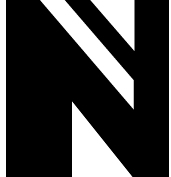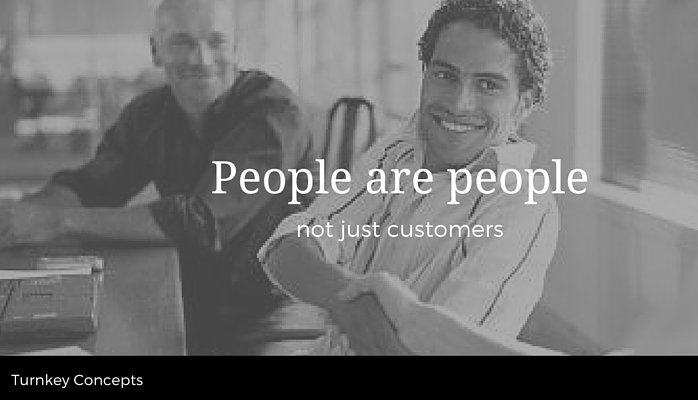The people who buy from me know me, and I know the people that I sell to.
We’ve all heard the term “customer” – it just means “someone who purchases goods.” If you do something that someone pays for, then you have a customer. You might get paid for working a job, or selling a product that you make. Either way, customers are the recipients of our efforts – we spend our own resources to create value and then someone else sees that value and trades us some of their resources for it.
The most dangerous thing that we can do, I think, is to forget that the people on either end of these transactions have names. Families, histories, lives, stories. The person who just walked into your store or landed on your website isn’t your “customer”…it’s Brian. And Brian is looking for something to make his life different; he’s looking for a gift for his wife, because Brian likes to give gifts, and his wife likes to get them. His wife, Allison, likes to get gifts from Brian because it lets her know that he’s thinking about her. And Brian just walked into your store.
You don’t know anything about Brian the first time he walks in or lands on your homepage, but you have an opportunity each time you connect to establish that he’s not “customers” to you, he’s Brian. When people are valued it makes their lives better, and that’s really why most of us do anything we do – to make life better.
My challenge to you this week is to evaluate your business and ask if your “customers” are establishing real connections with the people in your organization that they trade value with, and whether your business is even structured to allow for that.
You can see this on my LinkedIn if you’d like

